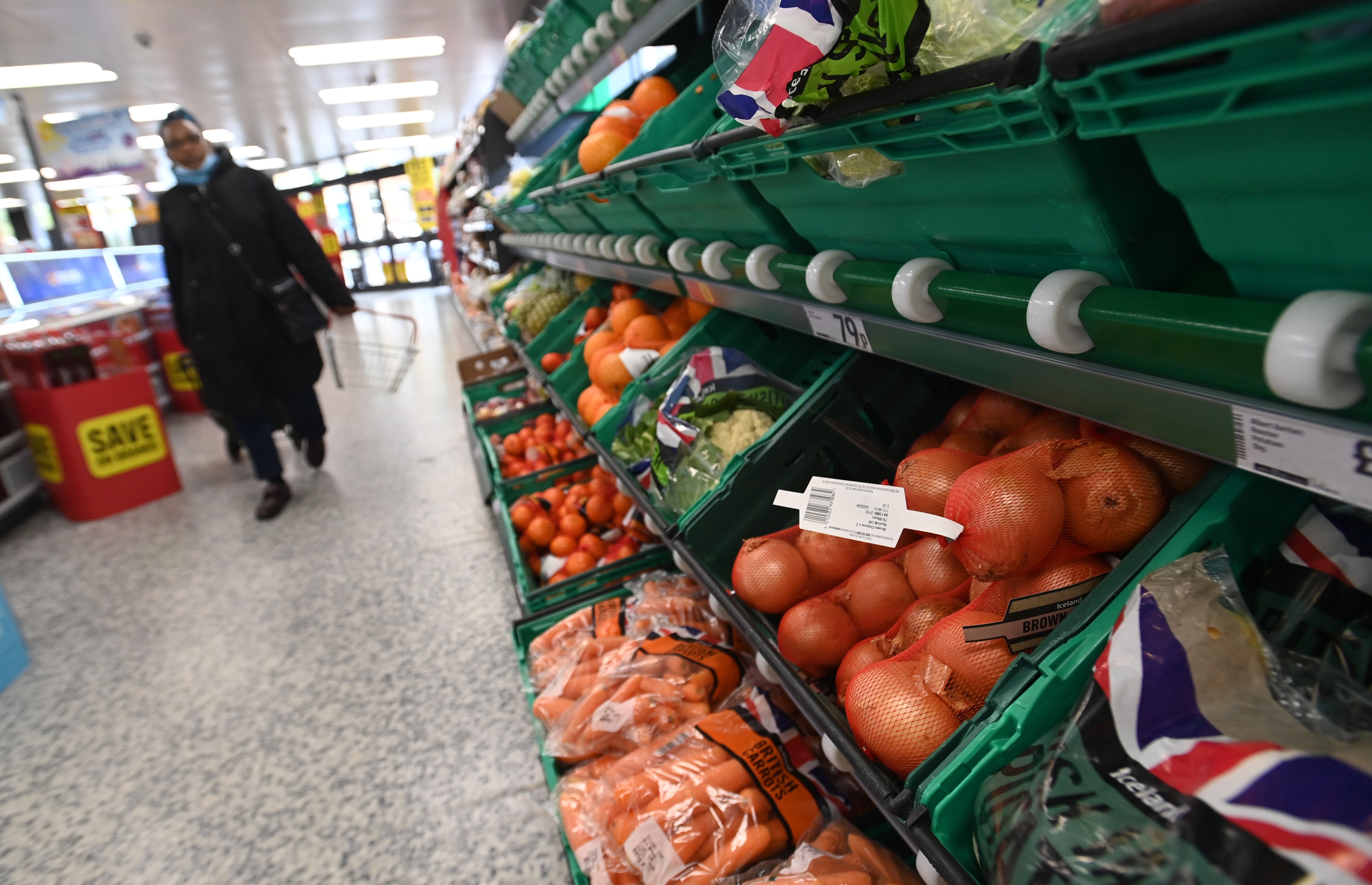Cost of living crisis: How families are being hit hardest with 13% inflation
Households with dependent children face rising costs that far outstrip the national average, writes Kate Hughes


Families with children are grappling with price rises of £400 a month for basic items including food, rent and heating, experts have warned, as social security rates fall to a 40-year low.
New research from the poverty charity the Joseph Rowntree Foundation (JRF) and Loughborough University shows inflation being felt soonest and hardest by those on the lowest incomes, who spend a higher proportion of their incomes on essential items.
The pressures on budgets are being driven by rising costs for core necessities, including fuel, which has more than doubled in cost in the past year, food (up by 9.3 per cent), childcare (up by 6.7 per cent), motoring and other travel costs.
Together, this equates to a rise in costs for families of 13 per cent compared with last year, well ahead of the main inflation rate for April.
In cash terms, families are spending about an extra £120 a month on energy alone, as well as an additional £90 on transport including petrol and another £65 every month on childcare.
At the same time, without further action, the basic rate of social security in 2022/23 will be the lowest since 1982, warns Peter Matejic, deputy director of evidence and impact at the JRF.
"Rising prices are affecting all of us, but for the UK’s poorest families there is no escape from soaring costs because so much of their income goes into the basics that everyone needs to take part in society,” he says.
“The symptoms of these astonishing price rises can be seen in the shops, in people rationing showers to once a week, giving up milk in their tea and eating cold meals to avoid using the oven.
“The cause is not simply rising prices – it is the growing gap between what social security provides and the income needed to reach an acceptable standard of living.”
The younger the children in a household, the higher the likelihood that the household is living in poverty, data from the foundation shows.
The latest figures available, relating to 2019/20, show that months before inflation began to rise dramatically and the current cost of living crisis kicked in nationwide, 36 per cent of families with children under four years old were already living in poverty at that time.
However, even in households containing children aged between 11 and 18, a quarter were living in poverty.
The Centre for Research in Social Policy (CRSP) at Loughborough University calculates that a family with two adults and two primary aged children requires a household income or £35,824 a year to afford a minimum decent standard of living after tax and benefits adjustments.
“These latest figures show a dramatic increase in what households with children need in order to meet their essential needs and participate in our society,” says Matt Padley, associate director and senior research fellow at the CRSP.
“It is important to be clear that this cost of living crisis is not being felt evenly across society. It is those on the lowest incomes who are feeling this most keenly, with many really struggling to meet even their most basic needs. These are the households that were already having to make difficult decisions, those that have found the support they receive through our social security system eroded and weakened enormously over recent years.
“The dogged belief in work as ’the’ route out of low income has meant that the holes in the safety net have grown larger and larger. The latest challenges to the costs of essentials has piled pressure on those already most squeezed.
Households with children do face particular pressures on the cost of a minimum standard of living, and the areas where costs are increasing most rapidly make up a substantial proportion of this living standard: food, home energy, transport and social and cultural participation, which includes things like broadband and educational school trips for children,” Padley adds.
With costs rising at a faster rate than incomes, many families with children will be having to make really difficult decisions about what to prioritise, where to cut back and what to go without, he says.
“This is not about going without luxuries, but rather about not being able to cover the cost of essentials. No one in the UK in 2022 should be having to take these sorts of decisions.”
There’s no doubt that such incredible pressure is being felt by the children too, after separate figures released last week show that four in five children worry about their families not having enough money.
“The chancellor needs to recognise the urgency of this situation and realise that he really does have the power to protect the worst off from being pulled under,” Matejic argues.
“This cost of living crisis is being keenly felt, and will get worse without decisive action.
“The government has the power and can choose to use the benefits system to uprate in line with inflation, ensuring that nobody falls below an income that allows them to afford the basics for themselves and their family.”
Padley believes that, in the short term, reinstating the £20 a week uplift in universal credit introduced during the pandemic would go some way to help, targeting support at those low-income households that need it most.
“In the longer term, having the collective imagination to create a social security system that supports people to live in dignity is a critical challenge.”
Join our commenting forum
Join thought-provoking conversations, follow other Independent readers and see their replies
Comments
Bookmark popover
Removed from bookmarks